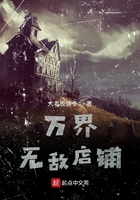WHEN THE DREAM CAME TRUE
At first the road lay between fertile farms dotted with shocked wheat, covered with undulant seas of ripening oats, and forests of growing corn. The larks were trailing melody above the shorn and growing fields, the quail were ingathering beside the fences, and from the forests on graceful wings slipped the nighthawks and sailed and soared, dropping so low that the half moons formed by white spots on their spread wings showed plainly.
"Why is this country so different from the other side of the city?" asked the Girl.
"It is older," replied the Harvester, "and it lies higher.
This was settled and well cultivated when that was a swamp. But as a farming proposition, the money is in the lowland like your uncle's. The crops raised there are enormous compared with the yield of these fields."
"I see," said she. "But this is much better to look at and the air is different. It lacks a soggy, depressing quality."
"I don't allow any air to surpass that of Medicine Woods," said the Harvester, "by especial arrangement with the powers that be."
Then they dipped into a little depression and arose to cross the railroad and then followed a longer valley that was ragged and unkempt compared with the road between cultivated fields. The Harvester was busy trying to plan what to do first, and how to do it most effectively, and working his brain to think if he had everything the Girl would require for her comfort; so he drove silently through the deepening shadows. She shuddered and awoke him suddenly. He glanced at her from the corner of his eye.
Her thoughts had gone on a journey, also, and the way had been rough, for her face wore a strained appearance. The hands lying bare in her lap were tightly gripped, so that the nails and knuckles appeared blue.
The Harvester hastily cast around seeking for the cause of the transformation. A few minutes ago she had seemed at ease and comfortable, now she was close open panic. Nothing had been said that would disturb her.
With brain alert he searched for the reason. Then it began to come to him. The unaccustomed silence and depression of the country might have been the beginning.
Coming from the city and crowds of people to the gloomy valley with a man almost a stranger, going she knew not where, to conditions she knew not what, with the experiences of the day vivid before her. The black valley road was not prepossessing, with its border of green pools, through which grew swamp bushes and straggling vines. The Harvester looked carefully at the road, and ceased to marvel at the Girl. But he disliked to let her know he understood, so he gave one last glance at those gripped hands and casually held out the lines.
"Will you take these just a second?" he asked.
"Don't let them touch your dress. We must not lose of our load, because it's mostly things that will make you more comfortable."
He arose, and turning, pretended to see that everything was all right. Then he resumed his seat and drove on.
"I am a little ashamed of this stretch through here," he said apologetically. "I could have managed to have it cleared and in better shape long ago, but in a way it yields a snug profit, and so far I've preferred the money. The land is not mine, but I could grub out this growth entirely, instead of taking only what I need."
"Is there stuff here you use?" the Girl aroused herself to ask, and the Harvester saw the look of relief that crossed her face at the sound of his voice.
"Well I should say yes," he laughed. "Those bushes, numerous everywhere, with the hanging yellow-green balls, those, in bark and root, go into fever medicines.
They are not so much used now, but sometimes I have a call, and when I do, I pass the beds on my----on our land, and come down here and get what is needed.
That bush," he indicated with the whip, "blooms exquisitely in the spring. It is a relative of flowering dogwood, and the one of its many names I like best is silky cornel. Isn't that pretty?"
"Yes," she said, "it is beautiful."
"I've planted some for you in a hedge along the driveway so next spring you can gather all you want. Ithink you'll like the odour. The bark brings more than true dogwood. If I get a call from some house that uses it, I save mine and come down here. Around the edge are hop trees, and I realize something from them, and also the false and true bitter-sweet that run riot here.
Both of them have pretty leaves, while the berries of the true hang all winter and the colour is gorgeous. I've set your hedge closely with them. When it has grown a few months it's going to furnish flowers in the spring, a million different, wonderful leaves and berries in the summer, many fruits the birds love in the fall, and bright berries, queer seed pods, and nuts all winter."
"You planted it for me?"
"Yes. I think it will be beautiful in a season or two;it isn't so bad now. I hope it will call myriads of birds to keep you company. When you cross this stretch of road hereafter, don't see fetid water and straggling bushes and vines; just say to yourself, this helps to fill orders!"
"I am perfectly tolerant of it now," she said. "You make everything different. I will come with you and help collect the roots and barks you want. Which bush did you say relieved the poor souls scorching with fever?"
The Harvester drew on the lines, Betsy swerved to the edge of the road, and he leaned and broke a branch.
"This one," he answered. "Buttonbush, because those balls resemble round buttons. Aren't they peculiar? See how waxy and gracefully cut and set the leaves are. Go on, Betsy, get us home before night.
We appear our best early in the morning, when the sun tops Medicine Woods and begins to light us up, and in the evening, just when she drops behind Onabasha back there, and strikes us with a few level rays. Will you take the lines until I open this gate?"
She laid the twig in her lap on the white gloves and took the lines. As the gate swung wide, Betsy walked through and stopped at the usual place.














